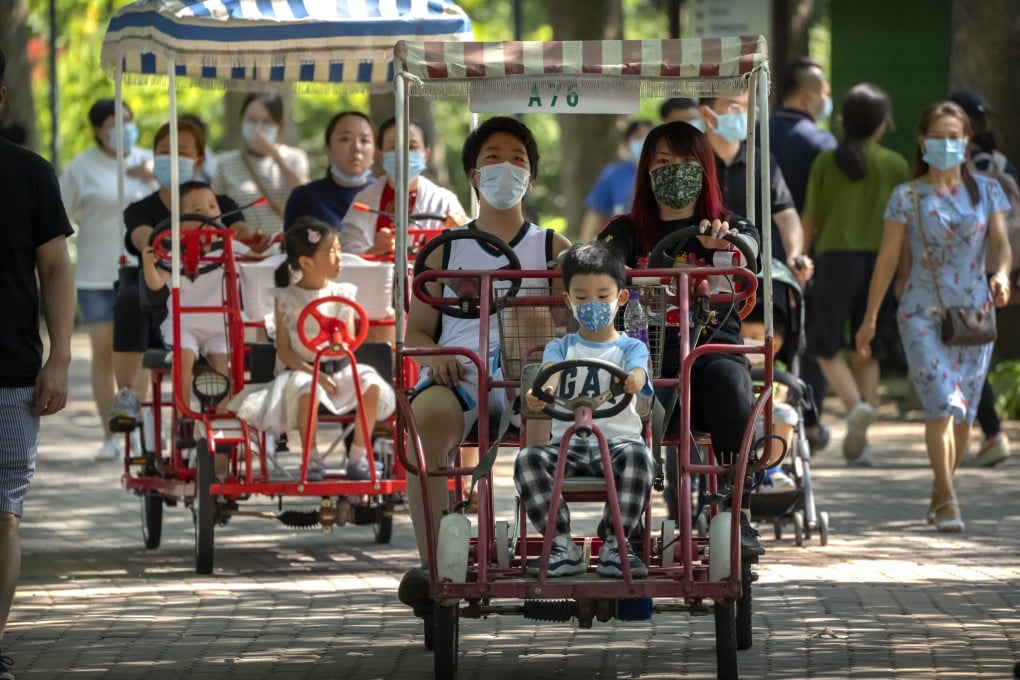Advertisement
Couples in China can now have up to three children, but who is going to take care of them?
- The government now officially allows couples to have three children, but for many families childcare is still a major concern
- Some suggest the new rules may make little difference until new fathers are given more time off to help care for children
Reading Time:3 minutes
Why you can trust SCMP
3

China will now allow couples to have up to three children, marking a major shift from the strict policies of the past four decades, but a lack of childcare options may limit the number of people willing to take up this option.
While China’s birth rates have been on a downward trend in recent years, they may hit the lowest level on record this year as families delay pregnancy plans due to concerns over access to medical support or the safety of Covid-19 vaccines, according to a recent analysis by Jefferies Financial Group.
China’s population census in May showed the nation’s total fertility rate – the average number of children each woman will have – dropping from 1.7 in 2018 to 1.3 in 2020, below the 1.5 mark that usually heralds population decline.
Advertisement
Based on the present rate, China’s population would fall to less than 700 million people by the end of the century from 1.4 billion today, Bert Hofman, a director at the East Asian Institute, told an online conference recently.
The decline comes amid changing gender roles, with many Chinese women saying they have no desire to get married or have children for fear that it would impair their career prospects or because of the lack of support for working mothers.
Advertisement
One mother of two, Shanghai-based beauty consultant Annie Xu, said she did not plan to have a third child because of high property prices and the competitive education system in the city – but childcare was also a concern.
Advertisement
Select Voice
Select Speed
1.00x